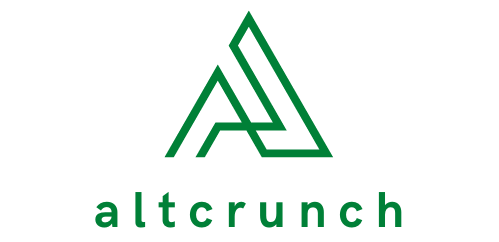There are a number of benefits of alternative investments. One of the key benefits is that these investments can offer a greater degree of diversification than traditional investments like stocks and bonds.
Alternative assets can also provide investors with opportunities for returns that are not as correlated with stock and bond markets. This can help to reduce overall portfolio risk, while also providing the potential for higher returns.
Another benefit of alternative investments is that they can often be held in tax-advantaged accounts like IRAs and 401(k)s, which can lower investors’ overall tax bills.
Finally, many alternative investments are made through private funds, which can provide investors with exclusive access to some of the most promising investment opportunities.
Alternative investments can be classified into one of two categories: public or private. REITs, or real estate investment trusts, are an alternative investment you’ve probably heard of. This is a frequent alternative investment for the general people. You’ve certainly heard about REITs from your financial advisor, and you may even have some REIT holdings in your portfolio. While REITs can be a good investment, they lack many of the benefits of private alternative investments. A lot of investors aren’t aware of the difference. Private real estate funds, on the other hand, outperform REITs dramatically. We’ve discovered that the biggest gap in most investors’ portfolios is in private alternative investments, so that’s where we’ll focus.
1. Generally uncorrelated to the stock market
Every investor who has been in the stock market for a long time has certainly had some large successes… and some big losses. Anyone who is nearing retirement or has already retired has felt the pain of watching their portfolio decline, often dramatically. Investors pursue alternative investments for a variety of reasons, one of which is diversification. Diversification and excellent returns were two of the top reasons for top U.S. investment advisors to invest in alternatives, according to a recent poll by iCapital Network.
An investment that is uncorrelated to the stock market is one that does not fluctuate in response to the market’s ups and downs. Many investors have discovered private alternatives as a method to diversify their portfolios and hedge against volatility. As a result, if the stock market falls sharply, they will have a hedge of protection, and their entire investment portfolio will be unaffected. Even in a stable economy, the stock market is notoriously unstable, and alternatives are mostly immune to the public markets’ volatility.
Real estate is a fantastic example. Assume you have a mortgage note investment or a rental property. Even if the stock market has been volatile in recent months, your borrower or tenant will continue to pay their mortgage or rent.
2. Lack of volatility
The share price of a traditional public investment fluctuates based on a range of factors (many of which are not directly related to a company’s success), but is rarely linked to an actual asset. You escape the volatility of public investments because private investment shares are not publicly traded. Furthermore, your investment is usually backed by a genuine asset.
Some may argue that volatility is unimportant for long-term investors because, despite its ups and downs, the stock market still averages 6-8 percent over time (depending who you ask). What they don’t realise is that volatility suffocates compounding.
3. Direct ownership
What you’re getting in most public investments is a paper asset – the discounted value of future expected earnings. You don’t really have any possessions. Even if you invest in a REIT, you’re still a long way from having your name on the real estate property’s deed.
When you purchase excellent wine or art, you are purchasing the bottles of wine or the oil painting directly. If you purchase a rental property, you own it outright. You have a lien on a property if you buy a mortgage note. Alternatively, if you invest in a private fund, you will typically have direct ownership of the assets that they acquire.
4. Direct tax benefits
Pass-through depreciation and long-term capital gains treatment are the two most major tax benefits. Depreciation expense (a non-cash expense) is deducted from net income by many real estate funds or syndications, lowering taxable income. Depreciation/depletion tax treatment for oil and gas investments is quite advantageous.
Aspen Funds employs pass-through LLCs, in which investors hold a portion of the company. A part of the income in our funds is classified as long-term capital gains, which has a highly advantageous tax treatment.
Many investors are also unaware that eligible retirement funds, such as a 401K or an IRA, can be used to invest in private alternatives. You can grow your investment tax-deferred or even tax-free depending on how you structure it.
5. Strong income
Although not all private alternative investments are cash-flowing — that is, they pay you back in cash on a monthly or quarterly basis – many are, particularly in a cash-flowing real estate approach. Some people can earn a lot of money, ranging from 8% to 10% every year. Many funds are set up with a preferred return, in which investors are paid first and in cash.
Anyone who has tried to make money through public investments like CDs, bonds, or dividend-paying equities understands how difficult it may be. We frequently speak with investors whose portfolios are failing to produce cash flow, which is typically in the low single digits. As previously said, public markets can be quite volatile, increasing the risk in exchange for a tiny return.
Get access to private institutional deals and earn interest at a rate typically higher than what most CDs currently offer. With Corvo Direct, you can diversify your portfolio by investing in credit, industrial warehouses, self-storage space, and many more low-risk asset classes. Click here to learn more.

